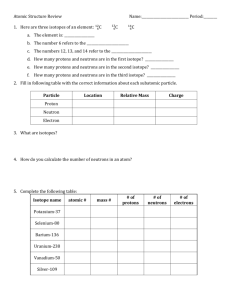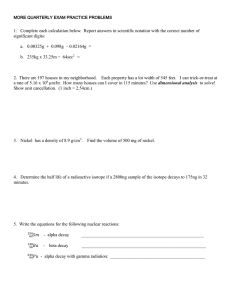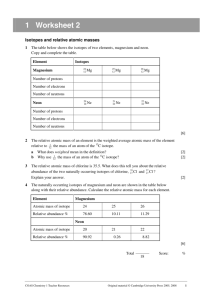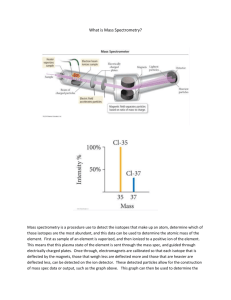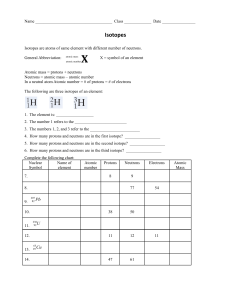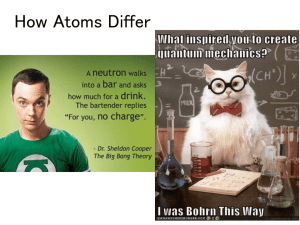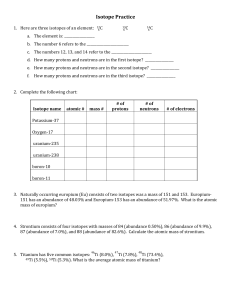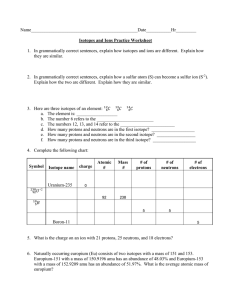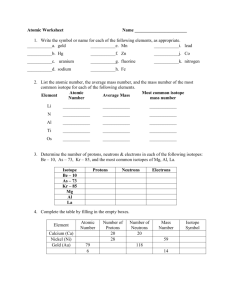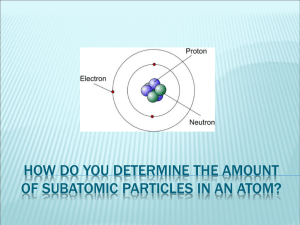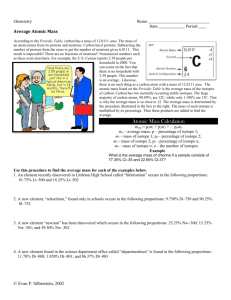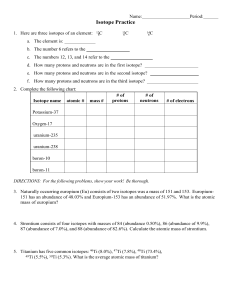Chapter 4 Review
advertisement
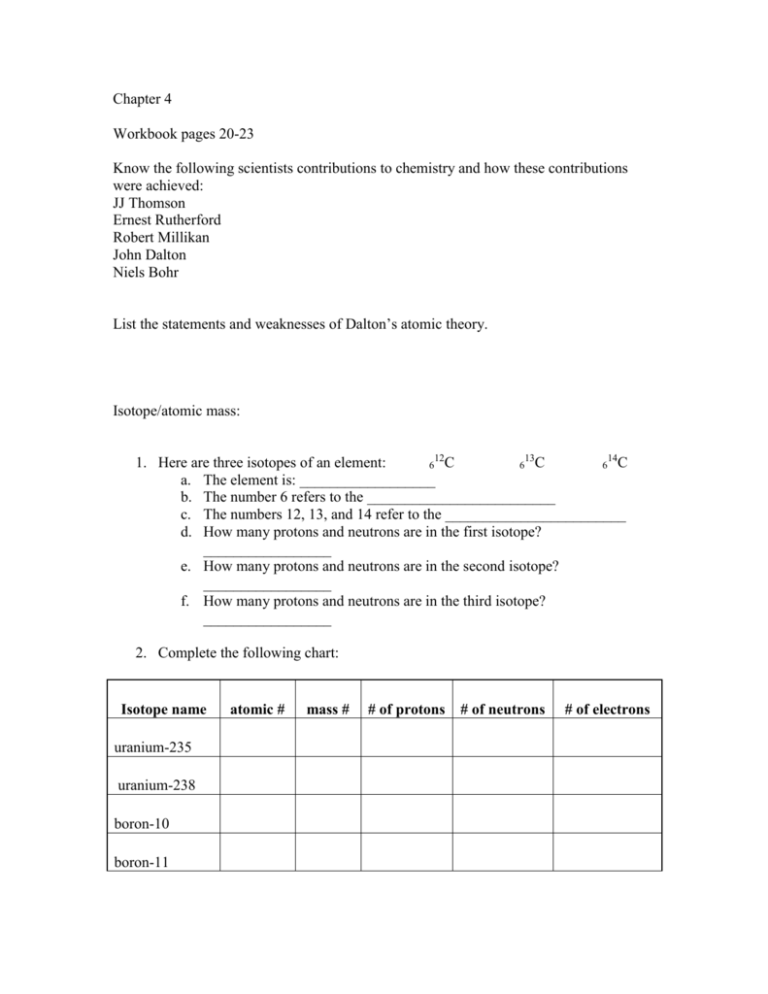
Chapter 4 Workbook pages 20-23 Know the following scientists contributions to chemistry and how these contributions were achieved: JJ Thomson Ernest Rutherford Robert Millikan John Dalton Niels Bohr List the statements and weaknesses of Dalton’s atomic theory. Isotope/atomic mass: 12 13 14 1. Here are three isotopes of an element: 6 C 6 C 6 C a. The element is: __________________ b. The number 6 refers to the _________________________ c. The numbers 12, 13, and 14 refer to the ________________________ d. How many protons and neutrons are in the first isotope? _________________ e. How many protons and neutrons are in the second isotope? _________________ f. How many protons and neutrons are in the third isotope? _________________ 2. Complete the following chart: Isotope name uranium-235 uranium-238 boron-10 boron-11 atomic # mass # # of protons # of neutrons # of electrons 3. Naturally occurring europium (Eu) consists of two isotopes was a mass of 151 and 153. Europium-151 has an abundance of 48.03% and Europium-153 has an abundance of 51.97%. What is the atomic mass of europium? 4. Strontium consists of four isotopes with masses of 84 (abundance 0.50%), 86 (abundance of 9.9%), 87 (abundance of 7.0%), and 88 (abundance of 82.6%). Calculate the atomic mass of strontium. 5. An element has the following isotopic information. Use it to calculate the average atomic mass and identify the element. 1 2 3 4 Mass 203.973 205.9745 206.9759 207.9766 % 1.40 24.10 22.10 52.40
